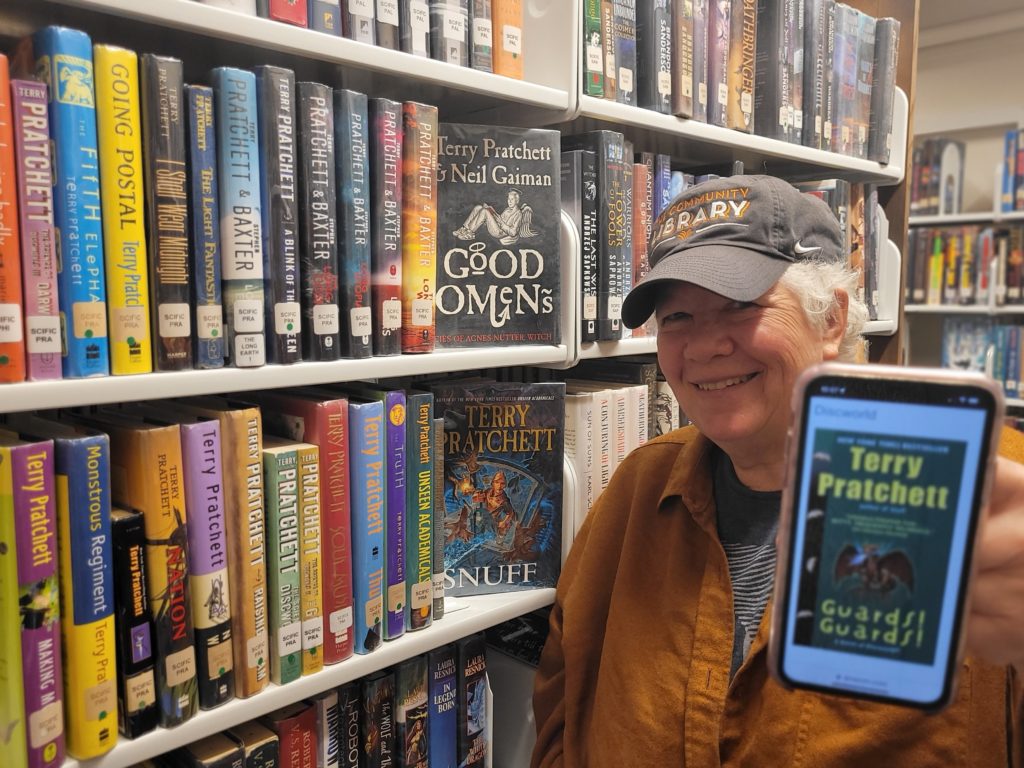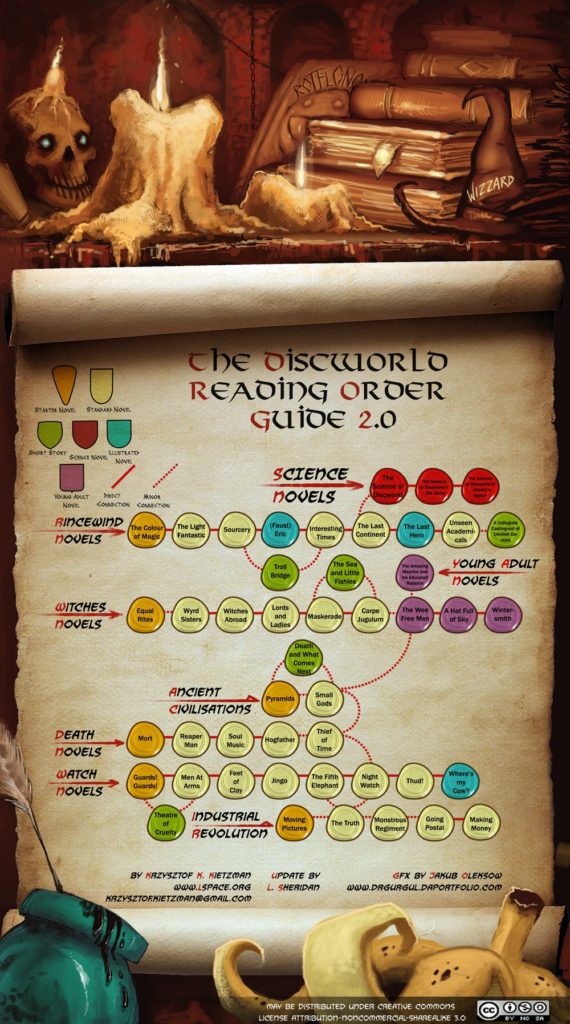Cathy Butterfield, Collections Manager, recommends Guards! Guards! A Discworld novel by Terry Pratchett
The trouble with having an open mind, of course, is that people will insist on coming along and trying to put things in it.
Sir Terry Pratchett (OBE)

Here there be dragons. Of course, this is Discworld, supported by four elephants, traveling on the back of a giant tortoise swimming through space, where million-to-one odds come true rather more often than they ought. Particularly in the gritty streets of Anhk-Morpork, patrolled by the thin muddy line of the Night Watch. Dragons are above their pay scale, but they do what they can. Mainly, run. Or hide. As Captain Vimes ponders:
“It’s a metaphor of human bloody existence, a dragon. And if that wasn’t bad enough, it’s also a bloody great hot flying thing.”
I revisited some of my favorite characters in Guards! this month, and it made me laugh, and think, which is sadly rare these days. The book (released in 1989 as Sir Terry was coming into the height of his powers) is also subversively relevant to current events. Politicians bewitched by the taste for power call up a force beyond their control and take the reins of government…reins which do not stand up to dragon fire. There are eerie portents in the text about inequity, supremacy, charismatic leaders, and the powerful magic of books.
Terry Pratchett wrote 41 books in Discworld from 1983-2015, spawning several major tracks for young people and adults. Guards! Guards! is the entry point for Watch cycle; the discerning young reader with a taste for skewed sword and sorcery will revisit the novels often for the pointed philosophy and comforting satire. Pratchett’s humor taps the same well waters as Monty Python, Douglas Adams and Robert Sheckley, but with deeper characters, finer storytelling, and more kindness.
Homer would welcome Sir Terry to his campfire to trade yarns. Like The Iliad and The Odyssey, Discworld stories are littered with borrowed metaphors, knowing winks to popular culture and history, and stolen scenes and phrases. Luckily, Sir Terry also wrote in an explanation for all the pseudo anachronisms that litter his books: L-space. The events in our universe and the Discworld are separated by just the width of a turning page.
“The relevant equation is Knowledge = Power = Energy = Matter = Mass; a good bookshop is just a genteel Black Hole that knows how to read. Mass distorts space into polyfractal L-space, in which Everywhere is also Everywhere Else. All libraries are connected in L-space by the bookwormholes created by the strong space-time distortion in any large collection of book.” ~Terry Pratchett, The Discworld Companion
Pratchett is the kind of writer that makes a person want to be a better person and help the people around them be better. He doesn’t say it outright. He’s sneaky that way. (“Person” in this instance being all-inclusive–whether dwarf, or vampire, or dragon, or werewolf, or magical ant. Or tourist.)
There is a Terry Pratchett book for everyone, though the arcs do tend to bend back on themselves, making the reading guide below an invaluable resource for librarians as well as readers. Fans of the books keep his spirit alive on archived websites dating back to the dawn of the internet, usenet and alt net listserves.
The best way to enjoy L-space is to dive in.
Find it in our Axis360 and Overdrive eAudiobook downloadable collections.
The Discworld Reading Order Guide

